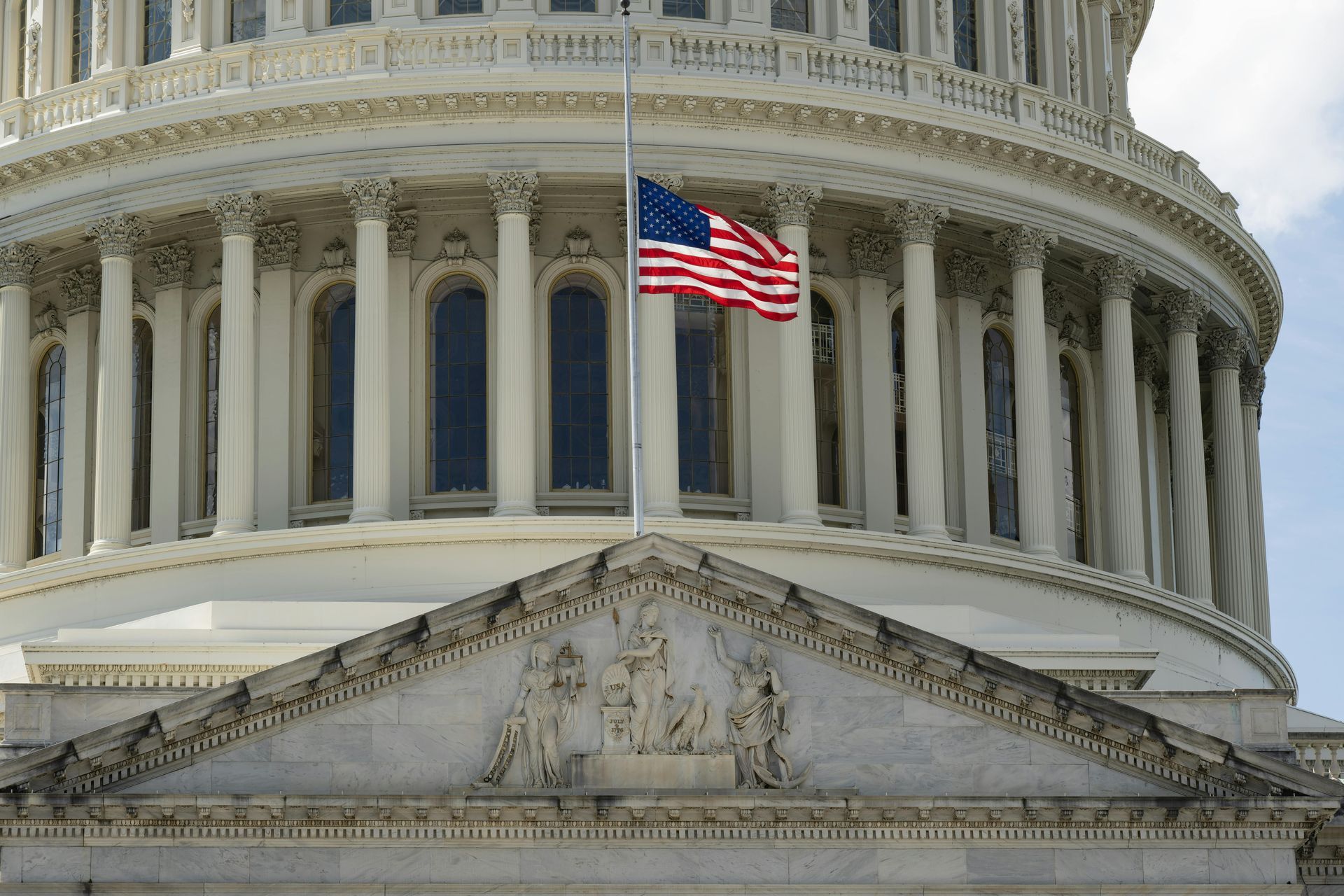Existem vistos de trabalho para influenciadores de mídia social?
Kris Quadros-Ragar • January 18, 2024
Click here to read this article in English
A resposta é: SIM!
Influenciadores de mídia social e produtores de conteúdo com um grande número de seguidores online podem se qualificar para um visto de trabalho temporário O-1 ou um green card EB-1, frequentemente chamados de "vistos de talento" ou "green cards de habilidade extraordinária".
O papel dos influenciadores de mídia social ganhou importância significativa nos últimos anos, tornando-se um elemento crucial nas estratégias de marketing de empresas e organizações em todo o mundo. Com uma oportunidade de mercado total superior a US$ 14 bilhões em várias plataformas de mídia social, há uma riqueza de oportunidades de emprego disponíveis para influenciadores de mídia social. Em reconhecimento à sua crescente influência e demanda, a política de imigração dos Estados Unidos começou a reconhecer os influenciadores de mídia social como uma profissão legítima, tornando-os elegíveis para vistos de trabalho temporários e green cards.
Uma maneira de provar que você é um influenciador excepcional de mídia social é apresentar evidências dos acordos de marca dos quais você fez parte. Quanto mais famosas e respeitadas forem as empresas, melhor para o seu caso. Mas mesmo se você trabalhou com empresas menores, ainda conta se você ganhou uma boa quantia de dinheiro. O tamanho da sua audiência, visibilidade e número de seguidores também são importantes, pois demonstram sua influência e potencial de ganho por meio do seu público.
Rota do Visto de Não-Imigrante O-1B:
Para solicitar o visto de não-imigrante O-1B, um visto de trabalho temporário, você deve ter uma oferta de emprego ou um agente nos Estados Unidos que atuará como seu patrocinador. Agentes podem ser indivíduos ou empresas que o representarão em vários projetos e acordos de marca nos quais você estará envolvido nos Estados Unidos. Além de apresentar a aplicação O-1B, você deve fornecer documentação de suporte, que normalmente inclui memorandos de acordo, contratos e provas de que continuará envolvido em projetos e oportunidades semelhantes durante a sua estadia.
Rota do EB-1A:
A rota do EB-1A oferece uma opção mais permanente para influenciadores de mídia social interessados em viver e trabalhar nos Estados Unidos. Ao contrário do visto O-1B, o visto EB-1A permite que o solicitante obtenha residência permanente nos EUA, comumente conhecida como green card. Como resultado, a categoria EB-1A possui um padrão de "habilidade extraordinária" muito mais elevado do que o visto O-1B. Portanto, é importante que os candidatos consultem um advogado experiente para avaliar sua experiência e realizações antes de solicitar um EB-1A.
Independentemente de considerar um visto O-1B ou um visto EB-1A, você deve estar preparado para reunir documentação importante para apoiar sua aplicação. Isso inclui evidências de altos ganhos em trabalhos anteriores, prova de colaborações com marcas e organizações renomadas, documentação de sua participação ativa em eventos prestigiosos, cobertura midiática destacando suas realizações, quaisquer prêmios recebidos e cartas de recomendação de outros influenciadores de mídia social respeitados ou figuras notáveis em sua indústria. Esses documentos desempenham um papel vital no fortalecimento da sua aplicação de visto e na demonstração de suas qualificações e realizações.
Por favor, observe que os influenciadores de mídia social que vêm para os Estados Unidos com um visto de turista (conhecido como visto B1/B2) e se envolvem em atividades estritamente proibidas por esse tipo de visto podem enfrentar sérias consequências se as informações se tornarem conhecidas pela imigração, como a possível proibição de entrada nos Estados Unidos e outras repercussões significativas ao reentrar. Por esse motivo, é crucial para os influenciadores de mídia social consultar um advogado de imigração experiente para ajudá-los a navegar no processo de visto e encontrar a classificação de visto adequada.
Se você acredita que pode se qualificar para qualquer um desses vistos, entre em contato com nosso escritório.
Este blog não se destina a fornecer aconselhamento jurídico e nada aqui deve ser interpretado como estabelecimento de um relacionamento advogado-cliente. Por favor, agende uma consulta com um advogado de imigração antes de agir com base em qualquer informação lida aqui.

The federal government entered a partial shutdown on January 31, 2026, after Congress failed to pass a final funding package. While this follows the record-breaking 43-day shutdown from last fall, this disruption is expected to be brief, with a House vote anticipated for the first week of February. However, as of February 2, several key departments are operating under shutdown contingencies. If you are an employer or a foreign national, here is what you need to know about how this affects your immigration matters: Impacts for Employers Certified LCAs: The Department of Labor (DOL) has suspended the processing of Labor Condition Applications. This means employers cannot currently obtain the certifications required to file new H-1B, H-1B1, or E-3 petitions. PERM and Prevailing Wages: Processing for PERM labor certifications and prevailing wage determinations has halted. This will likely cause a backlog once the government reopens. E-Verify: The E-Verify system is typically taken offline during a shutdown. Employers should continue to follow I-9 requirements but may be unable to resolve Tentative Nonconfirmations (TNCs) until the system is restored. Impacts for Employees and Families Consular Services: While U.S. embassies and consulates are fee-funded, their operations may be reduced. If you have an upcoming visa interview, check the specific consulate's website for status updates, as delays are possible. USCIS Operations: Because USCIS is primarily funded by application fees, it remains open. You should still attend scheduled interviews and biometrics appointments unless notified otherwise. CBP and Travel: U.S. Customs and Border Protection (CBP) functions are essential. Ports of entry remain open, though you may experience longer waiting times due to staffing adjustments. At Santos Lloyd, we are closely monitoring the situation as it unfolds. Whether you are an employer seeking guidance on how this shutdown impacts your hiring plans or an employee with general questions regarding if or how you may be affected, please reach out to our office. We remain dedicated to providing the updates and professional assistance necessary to help you navigate these disruptions.

U.S. Citizenship and Immigration Services (USCIS) has announced a major change to the H-1B cap selection process. Under a final rule issued on December 29, 2025, USCIS will replace the long-standing random H-1B lottery with a wage-weighted selection system that favors higher-paid and more complex positions. The rule is scheduled to take effect on February 27, 2026 , just ahead of the fiscal year 2027 H-1B cap registration season, unless delayed by legal challenges. If implemented, USCIS is expected to release additional guidance explaining how employers must submit registrations under the revised process. This change marks one of the most significant reforms to the H-1B program in recent years. Up until 2025, all registrations were treated equally once the annual cap was reached. Under the new system, selection odds will be tied to wage levels based on the U.S. Department of Labor’s Occupational Employment and Wage Statistics data. All H-1B registrations will still be placed into a single selection pool, but registrations tied to higher wage levels will receive multiple entries into that pool, increasing their likelihood of selection. Lower wage levels will receive fewer entries, making selection less likely but not impossible. H-1B wage levels are not determined solely by salary. Each wage level reflects the complexity of the job, the level of responsibility involved, and the education and experience required . Entry-level positions involving routine duties and close supervision are generally classified at the lowest wage level, while positions requiring independent judgment, advanced skills, and significant responsibility fall into higher wage levels. The highest wage level is reserved for roles that involve expert knowledge, strategic decision-making, and substantial leadership or technical authority. USCIS is expected to closely scrutinize selected petitions to ensure that the wage level claimed during registration is supported by the job duties and salary offered in the petition. Any discrepancies between the registration and the petition may result in requests for evidence, denials, or enforcement action. With the elimination of the purely random lottery, employers should begin preparing early by carefully evaluating job descriptions, wage levels, and overall H-1B strategy. Accurate classification and thoughtful planning will be essential under this new wage-based selection system. If you are an employer considering H-1B sponsorship, or a foreign professional wondering whether your position may qualify under the new wage-based system, consulting with experienced immigration counsel is more important than ever. Santos Lloyd Law is actively advising clients on H-1B cap registrations and strategy under the new rules. To discuss your options or determine whether you may qualify, contact our office to schedule a consultation.

During the recent administration there has been an increase in issuance of Requests for Evidence for EB-1A petitions for those of Extraordinary Ability. A Request for Evidence is a request that is made by USCIS that should explain how the evidence is deficient in proving the criteria argued and what additional evidence needs to be provided by the applicant to meet the criteria. EB-1A petitions are already normally subject to higher scrutiny because their approval is the first step needed to apply for Lawful Permanent Residence or a green card. USCIS normally requires not just evidence but that the evidence be provided with context and information to show why it matters in a particular field. For example, if you were providing evidence of your membership in an organization that requires outstanding achievements of its members, just providing evidence of the membership is not enough. You must explain what that membership is and provide background information on the organization granting the membership. You also need to provide evidence on the criteria that is used to select the members, information on those who select the members to show that they are recognized experts, other documentation such as articles about the membership organization to show its importance, and any other relevant evidence and background information to show that the criteria is met. A request for evidence being issued prior to the current administration was not uncommon, but in the current climate it is more surprising to not receive a request for evidence for this type of case. It is important to remember that a request for evidence is not a denial. Depending on the validity of the information in the request and the substance some Requests for Evidence can be overcome, and the case be approved. It is important to carefully review the request and note if there are any errors in the content and application of the regulations by USCIS. If you have an attorney, you should work with them and make sure that you provide any evidence you think may be helpful. Although there is a deadline by which a response must be submitted, attention to detail and patience will go a long way when dealing with having to respond to a request for evidence. If you believe you may qualify for this type of visa, please feel free to contact our office.



